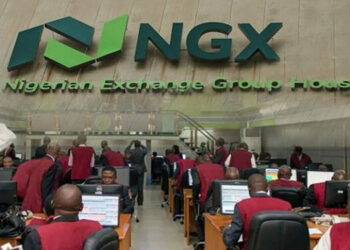In a concerning development, Nigerian households are grappling with a staggering 27.64 per cent increase in their bills for housing, water, electricity, gas, and other fuels over the past year.
The latest data from the Consumer Price Index (CPI), released by the National Bureau of Statistics (NBS), reveals the stark reality of escalating inflation rates and dwindling incomes faced by Nigerians.
According to the March 2024 CPI data, the index for housing, water, electricity, gas, and other fuels surged from 437.8 in March 2023 to 558.8 in March 2024. This substantial jump underscores the growing financial strain on households across the country.
The CPI serves as a vital economic indicator, tracking the average fluctuation in prices that consumers pay for a range of goods and services, including essential household expenditures.
Expenditures on housing, water, electricity, gas, and other fuels now rank as the second most significant drivers of overall inflation in Nigeria, according to the latest NBS data. This highlights the mounting cost pressures facing households nationwide.
Inflation on household bills reached an all-time high in March 2024, with the NBS CPI data revealing a record-breaking rate of 27.64 per cent. This surpasses the previous peak observed in December 2016, signaling a concerning trend of escalating costs in essential services.
The inflation trend for household bills has been on a consistent upward trajectory since June 2021, starting from a rate of 10.13 per cent. This sustained increase underscores the significant economic challenges facing essential services sectors and the broader Nigerian population.
The rising cost of housing has particularly impacted tenants, especially in urban areas, where rents have surged by over 40 per cent in the past 12 months. This sharp increase is adding to the financial strain on households, exacerbating the cost of living crisis in cities across the country.
The escalating cost of water has also raised alarm bells, with the Association of Pure Water Producers expressing concerns over soaring production costs. Prices for pure water sachets could reach N100 unless immediate action is taken to address the underlying factors driving up costs.
Additionally, the recent hike in electricity tariffs mandated by the Nigerian Electricity Regulatory Commission (NERC) is set to further burden Nigerians financially. The termination of energy subsidies for Band A customers, coupled with tariff adjustments averaging over 200 per cent, has sparked widespread criticism and raised questions about the affordability of energy for consumers.
Furthermore, the cost of gas and other fuels has seen significant increases, with prices for items such as liquefied petroleum gas (cooking gas) and household kerosene climbing steadily over the past year. These upward trends in fuel-related expenses are adding to the financial pressures faced by Nigerian households.
In light of these developments, Nigeria’s inflation rate surged to 33.2 per cent in March 2024, driven by increases in food and beverage prices, as well as energy and housing costs. Food inflation reached 40.01 per cent year-on-year, fueled by rising prices for staple items such as garri, millet, and yam tubers.
As households continue to grapple with rising costs and shrinking purchasing power, urgent measures are needed to address the underlying factors driving inflation and alleviate the financial burden on Nigerians across the country.





